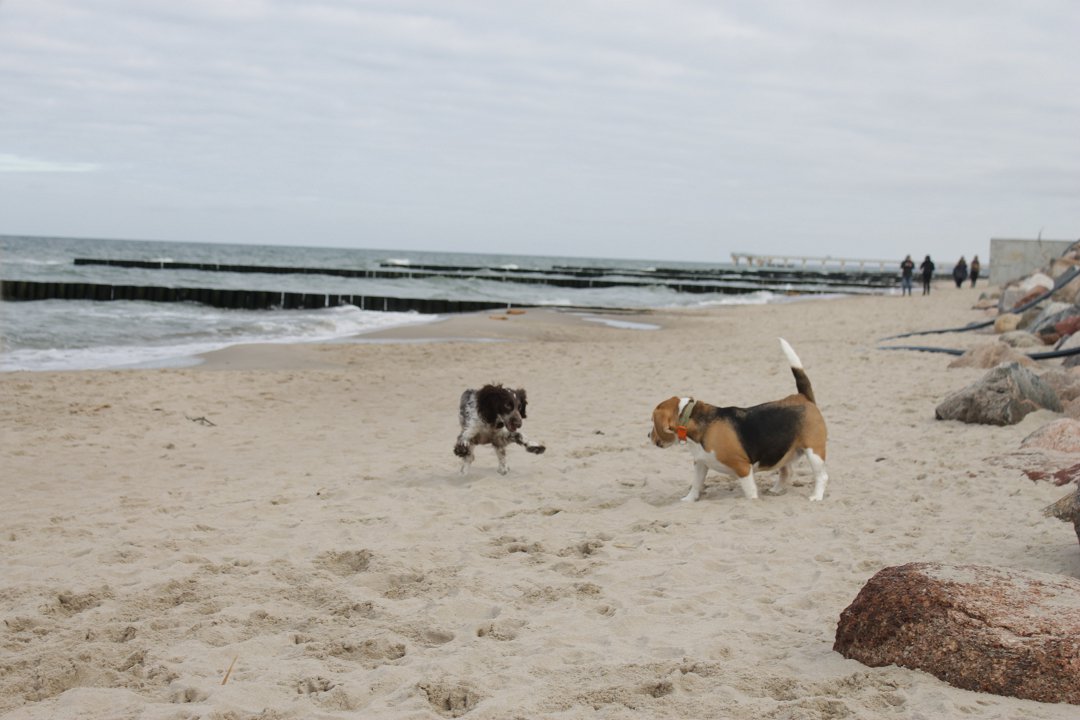Table of Contents
- 1 Introduction: The Importance of Choosing the Right Collar for Beagle Training
- 2 Expert Recommendations: Top Collar Options for Beagle Training
- 3 Comparing Collar Materials for Effective Beagle Training
- 4 FAQs About: what type of collar is best for beagle training
- 4.1 What are the different types of collars available for beagle training?
- 4.2 Which collar is the most recommended for beagle training?
- 4.3 How do I choose the right collar for my beagle?
- 4.4 Are there any collars that should be avoided for beagle training?
- 4.5 Can I use a harness instead of a collar for beagle training?
- 4.6 How do I properly fit a collar on my beagle?
Introduction: The Importance of Choosing the Right Collar for Beagle Training
Are you a proud Beagle owner looking to enhance your furry friend’s training? If so, you may be wondering, “What type of collar is best for Beagle training?” Well, you’ve come to the right place! The collar you choose plays a crucial role in your Beagle’s training journey, and selecting the right one can make all the difference. In this article, we’ll explore the various collar options available for Beagle training and provide expert recommendations to help you make an informed decision. So, let’s dive in and discover the perfect collar that will make training your Beagle a breeze!
When it comes to Beagle training, a collar is more than just an accessory. It serves as a vital tool to communicate with your furry companion and guide them in the right direction. The right collar can help address behavioral issues, improve obedience, and ensure your Beagle’s safety during walks. With a plethora of collar options available, such as beagle obedience collars, behavioral collars, and training harnesses, it’s essential to understand their features and benefits. In the next section, we’ll delve into expert recommendations and discuss the top collar options specifically designed for Beagle training. So, let’s explore the best collars that will aid you in shaping your Beagle into a well-behaved and happy companion.
Expert Recommendations: Top Collar Options for Beagle Training
When it comes to training a Beagle, choosing the right collar is crucial. The collar you select will greatly impact the effectiveness of your training sessions and the overall behavior of your furry friend. There are several collar options available, but not all are suitable for Beagles. To help you make an informed decision, we have compiled a list of expert-recommended collar options for Beagle training.
1. Martingale Collar
A Martingale collar is an excellent choice for Beagle training. It is designed to prevent your Beagle from slipping out of the collar while providing a gentle correction when needed. The collar tightens slightly when your Beagle pulls, discouraging pulling behavior without choking or causing discomfort.
2. Prong Collar
While controversial, a prong collar can be an effective tool for Beagle obedience training. It features metal prongs that apply pressure to the dog’s neck when they pull, mimicking the correction a mother dog would give to her puppies. However, it is important to use a prong collar correctly and under the guidance of a professional trainer to ensure your Beagle’s safety and well-being.
3. Head Collar
A head collar, such as the Gentle Leader, can be a game-changer for Beagle training. This type of collar fits over your Beagle’s snout and behind their ears, giving you control over their head movements. It redirects their attention and prevents pulling, making it easier to train them to walk politely on a leash.
4. No-Pull Harness
A no-pull harness is another great option for Beagle training, especially for dogs that tend to pull excessively. This type of harness has a front attachment point that redirects your Beagle’s forward motion when they pull, encouraging them to walk beside you instead. It provides a comfortable and humane way to discourage pulling behavior.
Remember, every Beagle is unique, so it may take some trial and error to find the collar that works best for your furry friend. It is also important to ensure that the collar fits properly and does not cause any discomfort or injury. Always consult with a professional trainer or veterinarian for guidance on what type of collar is best for your Beagle’s specific training needs.
In the next section, we will compare different collar materials to help you choose the most suitable option for effective Beagle training.
Comparing Collar Materials for Effective Beagle Training
When it comes to choosing the right collar for beagle training, one of the key factors to consider is the material it is made of. Different collar materials offer various benefits and drawbacks, so it’s important to understand the options available. Here, we will compare and contrast some common collar materials to help you make an informed decision for your beagle’s training needs.
1. Nylon Collars
Nylon is a popular choice for beagle collars due to its durability, affordability, and versatility. These collars are available in a wide range of colors and designs, allowing you to express your beagle’s personality. Nylon collars are also easy to clean and maintain, making them a practical choice for active beagles who love outdoor adventures. However, keep in mind that some beagles may be prone to chewing on nylon collars, so regular inspection is necessary to ensure the collar remains intact and safe.
2. Leather Collars
Leather collars are known for their classic and stylish appearance. They are durable and can withstand the test of time, making them a great investment for long-term use. Leather collars are also comfortable for beagles, as they soften and mold to their necks over time. However, leather collars can be more expensive compared to other materials, and they require regular cleaning and conditioning to maintain their quality.
3. Chain Collars
Chain collars, also known as choke collars or prong collars, are often used for training purposes. These collars are made of metal chains and provide a quick, corrective response when the leash is pulled. While some trainers find them effective for teaching obedience, it’s important to use them with caution and under the guidance of a professional. Improper use of chain collars can cause discomfort or injury to your beagle.
4. Martingale Collars
Martingale collars are designed to prevent beagles from slipping out of their collars. They consist of a fabric or nylon loop that tightens when the leash is pulled, but without the choking effect of a chain collar. Martingale collars are particularly useful for beagles who are prone to escape attempts or have necks larger than their heads.
5. Head Collars and Harnesses
For beagles who tend to pull on the leash or exhibit aggressive behavior, head collars and harnesses can be effective tools. Head collars, such as the Gentle Leader, provide control by gently redirecting your beagle’s head and discouraging pulling. Harnesses distribute the pulling force across the chest and shoulders, reducing strain on the neck. However, it’s important to introduce head collars and harnesses gradually and ensure they fit properly for maximum effectiveness and comfort.
By considering the pros and cons of different collar materials, you can choose the best option for your beagle’s training needs. Remember to prioritize your beagle’s safety and comfort, and consult with a professional trainer if you have any concerns or questions.
FAQs About: what type of collar is best for beagle training
What are the different types of collars available for beagle training?
There are several types of collars available for beagle training, including beagle training collars, beagle obedience collars, beagle behavioral collars, beagle correction collars, beagle leash and collars, beagle choke collars, beagle martingale collars, beagle prong collars, beagle no-pull collars, beagle training harnesses, beagle head collars, and beagle gentle leaders.
Which collar is the most recommended for beagle training?
The most recommended collar for beagle training is the beagle gentle leader. It provides gentle control over your beagle’s head, discouraging pulling and promoting obedience. It is a humane and effective option for training your beagle.
How do I choose the right collar for my beagle?
When choosing a collar for your beagle, consider factors such as your beagle’s size, behavior, and training needs. If your beagle tends to pull on the leash, a no-pull collar or a gentle leader may be the best choice. If your beagle requires more control, a prong or choke collar may be suitable. It’s important to consult with a professional trainer or veterinarian to determine the best collar for your beagle.
Are there any collars that should be avoided for beagle training?
While every beagle is different, it is generally recommended to avoid using harsh or aversive collars, such as shock collars, for beagle training. These collars can cause unnecessary stress and discomfort to your beagle, potentially leading to negative associations with training. It is best to opt for positive reinforcement training methods and humane collars.
Can I use a harness instead of a collar for beagle training?
Yes, a harness can be a suitable alternative to a collar for beagle training, especially if your beagle tends to pull on the leash. A harness distributes the pulling force more evenly across your beagle’s body, reducing strain on their neck. However, it’s important to choose a harness specifically designed for training purposes and consult with a professional trainer for guidance.
How do I properly fit a collar on my beagle?
To properly fit a collar on your beagle, ensure that it is snug enough to prevent slipping over their head but not too tight to cause discomfort or restrict breathing. You should be able to fit two fingers comfortably between the collar and your beagle’s neck. Regularly check the fit of the collar as your beagle grows to ensure it remains comfortable and secure.






Leave a Reply